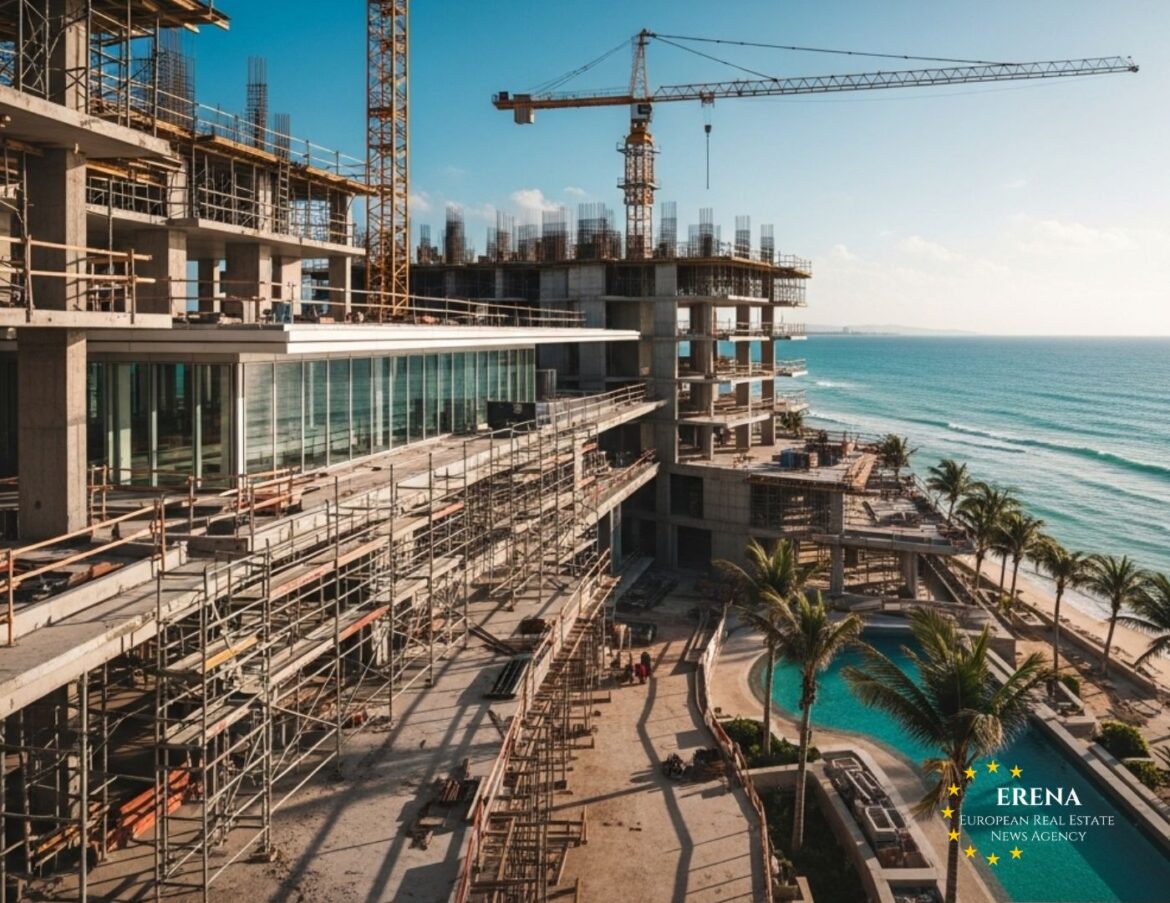American investment giant Goldman Sachs has officially exited a €100 million hotel development project in Greece’s popular Halkidiki region, a move that has surprised market analysts and sparked discussions about shifting priorities in the global hospitality investment sector.
The bank’s withdrawal highlights evolving strategic considerations, increased geopolitical uncertainty, and a reassessment of risk profiles tied to Mediterranean tourism developments.
Project Overview
The ambitious project envisioned the construction of a five-star luxury resort on the shores of Halkidiki, one of northern Greece’s most prominent tourist destinations. Initial plans included:
- Over 200 high-end rooms and suites
- Private beachfront villas with pools
- A luxury wellness and spa center
- Fine dining restaurants
- A private marina
- Conference and event spaces
- Environmentally integrated infrastructure and direct beach access
Targeting affluent travelers from Europe, the Middle East, and North America, the project had been backed by €100 million in planned investment, with Goldman Sachs participating as a lead investor through one of its European real estate funds.
Reasons for the Exit
While the official explanation cited a “strategic portfolio adjustment,” analysts suggest a range of underlying factors behind Goldman Sachs’s decision:
- Strategic Shift Toward Resilient Assets
The firm has increasingly focused on infrastructure, technology, and ESG-aligned investments, gradually reducing its exposure to traditional commercial real estate, especially in sectors vulnerable to economic cycles like hospitality. - Tourism Market Volatility
Despite a strong recovery in global tourism post-pandemic, the sector remains exposed to risks such as regional geopolitical tensions, energy cost volatility, and seasonal income fluctuations — all of which complicate long-term forecasts. - Escalating Construction Costs
The rising cost of materials, logistics, and labor in Greece has reportedly inflated the project’s budget by as much as 15–20%, calling into question its original financial viability. - Regulatory and Bureaucratic Challenges
Developers often face protracted approval processes in Greece, with layers of environmental regulations, heritage preservation concerns, and community opposition — especially for large-scale coastal developments.
Who Could Step In?
Following Goldman Sachs’s exit, the project’s developers have reportedly begun seeking new capital partners. Potential replacements include:
- Global private equity firms focusing on southern European assets
- Middle Eastern hotel investors from the UAE and Saudi Arabia, who are actively expanding into the Mediterranean
- Greek banks and regional developers, many of whom are eager to support high-profile tourism infrastructure
Industry insiders suggest the project is likely to continue but may be restructured to suit a new investor profile, possibly including brand changes, reduced scale, or a boutique concept.
Market Reactions
The exit has triggered mixed reactions across the hospitality and real estate sectors:
- Tourism industry leaders have voiced concerns that the withdrawal might shake investor confidence in the broader Halkidiki region.
- Developers and architects, however, see it as an opportunity to reframe the project with more realistic timelines and sustainable design.
- Environmental groups and local residents have welcomed the news, hoping that it will slow down overdevelopment and help preserve the natural landscape.
Broader Context: Tourism Investment Boom in Greece
Goldman Sachs’s decision comes at a time when Greece is seeing a boom in tourism-related investment. Between 2023 and 2025, major developments have been announced on islands like Rhodes, Crete, Mykonos, and the Peloponnese, involving brands such as Four Seasons, Aman Resorts, Accor, and Kerzner International.
According to the Bank of Greece, foreign direct investment in the Greek hotel sector surpassed €1.8 billion in 2024, with nearly 45% originating from international investors.
Halkidiki — with its pine-covered hills, clear waters, and proximity to Thessaloniki’s international airport — remains one of northern Greece’s most desirable tourist regions. However, it lacks large-scale infrastructure in some areas and presents logistical challenges for developments on this scale.
Future Scenarios
The project’s future now depends on how quickly and effectively a new investor can be found. Several scenarios are possible:
- New Institutional Backer
A large, long-term-focused fund could take over Goldman Sachs’s position and proceed with the original plan. - Project Restructuring
The development may be redesigned with fewer units, lower density, or repositioned as a boutique eco-resort, emphasizing sustainability and local integration. - Sale of the Land
If no suitable partner is found, the land parcel might be sold, potentially repurposed for smaller-scale uses such as luxury residences, a golf retreat, or low-impact tourism.
Strategic Implications
Goldman Sachs’s departure is not just a local development story — it reflects a broader shift in global real estate investment strategy. As uncertainty and inflation reshape investor priorities, assets once considered safe, like resort hotels, are now being scrutinized for long-term viability and ESG compliance.
Still, Greece remains a top destination for tourism-focused capital, especially as travel demand continues to rise and the government offers incentives for sustainable investment.
Conclusion
The withdrawal of Goldman Sachs from the €100 million hotel project in Halkidiki marks a significant moment for both the Greek real estate sector and global tourism investment trends. While it underscores growing investor caution, it also opens the door for new players to step in with fresh visions and alternative models.
Halkidiki’s appeal — combining natural beauty, accessibility, and rising brand interest — ensures that the region will remain on the investment radar. Whether the original project is revived or reimagined, the site’s potential is unlikely to go untapped for long — even without one of Wall Street’s most powerful names at the helm.

